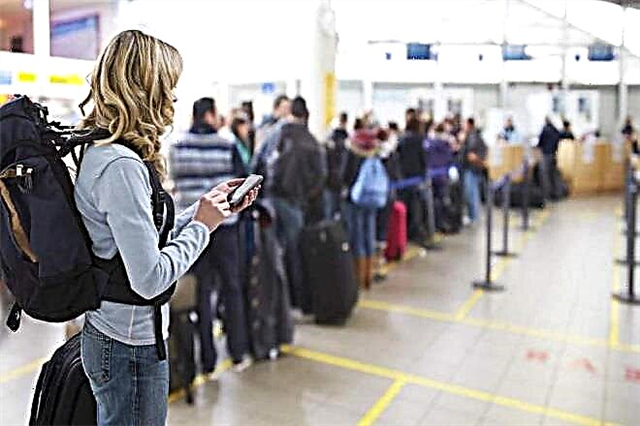Those who are planning a trip to the Promised Land for the first time have a far from idle question: what languages are spoken in Israel? Is it worth it to urgently go to the courses or is there a chance to get by with the already existing linguistic stock?

State language of the country
In a country like Israel, where people of many nationalities and religions live, the diversity of languages and dialects is very great. Therefore, a novice traveler may have a reasonable question, which language is the official one.
Until 2021, two languages had this status in the country - Hebrew and Arabic. With the adoption of the "Basic Law: Israel is the National State of the Jewish People" in 2021, the situation changed: Hebrew became the only state language of the Israelis, and Arabic acquired a special status.
History and modernity of Hebrew
Israel's main language, like its native people, has a rich and interesting history. Until the beginning of the twentieth century, when the independent state of the Jews was absent on the world map, the Israeli dialect (Hebrew) was only a book language, which was mainly used for religious rituals. But the Jews still learned the language of their ancestors, they used it not only in synagogues, and therefore many of them do not believe that he was in the status of the dead.
At the beginning of the last century, the resurrection of the Hebrew language began thanks to the efforts of enthusiasts, in particular, Eliezer Ben-Yehuda, who is called the father of modern Hebrew. He was also the ideological inspirer of Hebraism, a Jewish social movement that put forward Hebrew as the only language of the Jews and denied the possibility of building a national culture on the basis of any other language.
Supporters of Hebraism argued that in Israel, the only language that has the status of a state language should be Jerusalem. More than 100 years later, their dream became a reality.
Modern Hebrew differs from the Old Testament and is still being improved. By the way, during, so to speak, the era of its decline, it became the basis of other languages: Yiddish, which was spoken by Jews living in Germany, USA, Canada, and Ladino, which is spoken by Spanish Jews.
Hebrew is very unusual for a Russian person. The national language of Israel, or rather its alphabet, has only 22 letters and all of them are consonants. Vowels are indicated by dots and dashes, which are written under the letters. They write in Hebrew from right to left.
Special status of the Arab
 Even at the time when Israel was a British colony, the Arabic language, along with English and Hebrew, had the status of the state language in this territory. But, in all honesty, we can say that the state languages in Israel, in essence, have never been equal.
Even at the time when Israel was a British colony, the Arabic language, along with English and Hebrew, had the status of the state language in this territory. But, in all honesty, we can say that the state languages in Israel, in essence, have never been equal.
Arabic is spoken in the country by about 20% of the population. But even when he had the status of a state, there were some nuances. For example, the Knesset (Israeli parliament) passed laws only in Hebrew, and only then translated them into Arabic and English.
Hebrew and Arabic have one language group - Semitic. But the equal sign in their use, despite the once identical official status, could not be put.
It even got to the point that in some cases it was necessary to resort to the judiciary in order to obtain permission to write the names of streets or inscriptions on road signs in Arabic. This is most likely why most Arabs living in the Promised Land are fluent in Hebrew.
Officially recognized languages
And yet, if you understand what language is spoken in Tel Aviv, Jerusalem and other cities of Israel, it is impossible to say unequivocally that it is Hebrew or Arabic.
Officially, there are 39 independent languages and dialects in the country. Most often you can hear Russian, English, French, Amharic (the state language of Ethiopia) speech. But there are also quite a few speakers of Polish, Spanish, Hungarian, Italian and even Chinese.
Therefore, it is unlikely that it will be possible to unequivocally determine what is the spoken language in Israel. People from different countries use their native language in parallel with the state language to communicate.
There is even a separate concept - officially recognized languages, that is, those in which you can conduct paperwork and teaching in schools. This group includes, in particular, Russian and English. They are considered relatives by about 22% of the population. Therefore, signs and inscriptions in these languages are not something extraordinary.
Russian language in Israel
Why Russian is spoken in Israel becomes clear if we turn to statistics. Many people from Russia live on the territory of the country. Over the past three decades, more than a million repatriates from the countries of the former Soviet Union have moved here. As a result, about a fifth of Israel's population is Russian-speaking.
There is even such a half-joke advice for tourists and emigrants from Russia and the CIS: if you get lost in Tel Aviv, stand in the middle of the street and ask for help in Russian. There will certainly be several people who will understand you and will prompt a way out of a difficult situation.
The Russian language in Israel has received the status of officially recognized. I have never been in the role of an officially recognized one, since a significant part of the population knows it, and, most importantly, among our former compatriots, it is preserved as a language of everyday communication. Therefore, in Israeli cities you can very often hear Russian speech and see signs in Russian.
International English in a Jewish country
 English is the first foreign language that Jewish children learn in schools. Therefore, most Israelis communicate fluently or reasonably well in English. According to ubiquitous statistics, 73% of the country's population is fluent in spoken English.
English is the first foreign language that Jewish children learn in schools. Therefore, most Israelis communicate fluently or reasonably well in English. According to ubiquitous statistics, 73% of the country's population is fluent in spoken English.
Before the official formation of the State of Israel, it was included in the list of the state languages of this territory. Subsequently, he lost this status, but he did not lose his significance for the communication of foreigners coming to the country.
Finally
If you are just going to visit the sights of Israel, then it is hardly worthwhile to urgently learn Hebrew or Arabic. You can get by with knowledge of spoken English or, in extreme cases, count on the fact that you will meet many Russian-speaking people.











